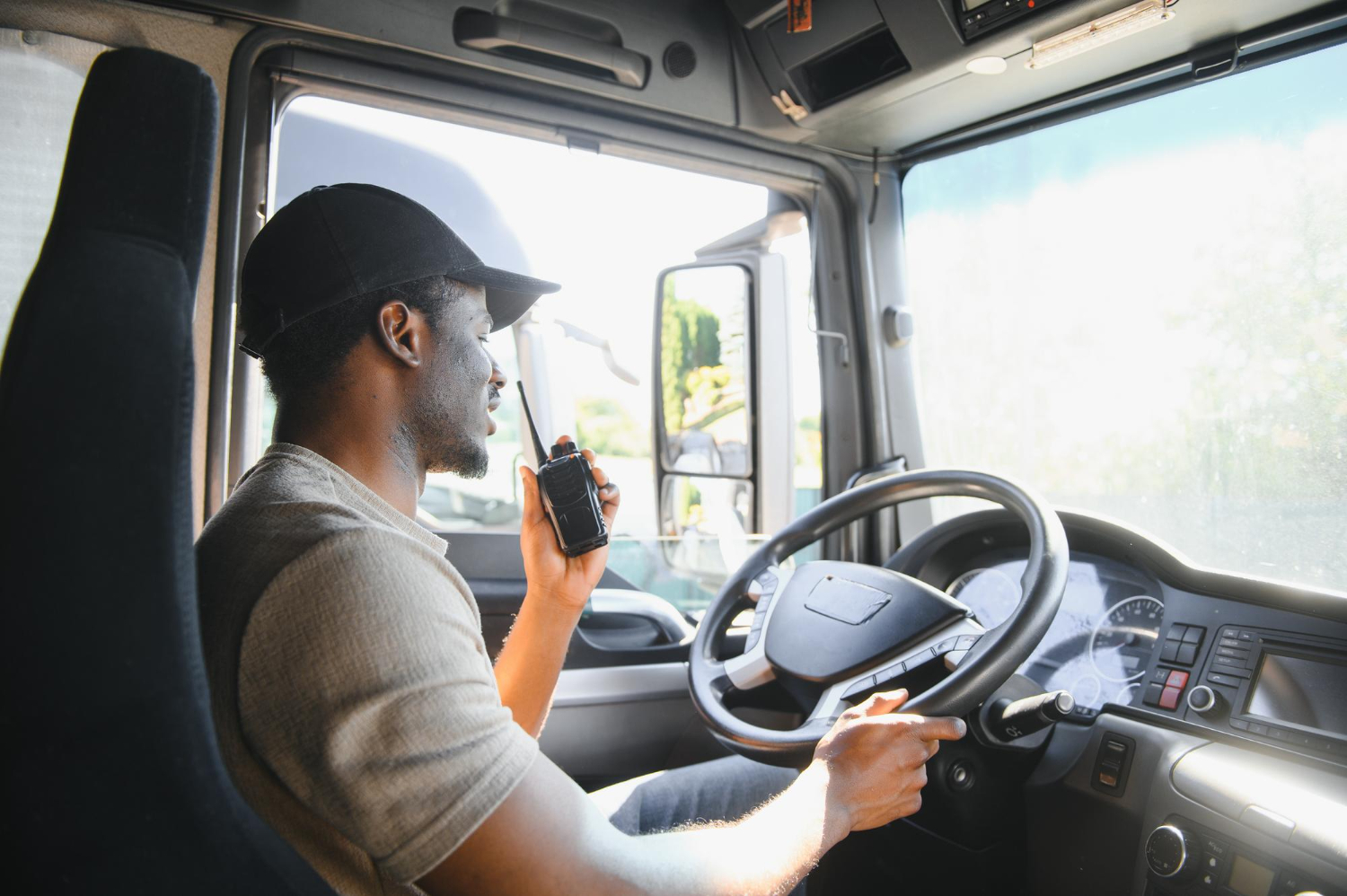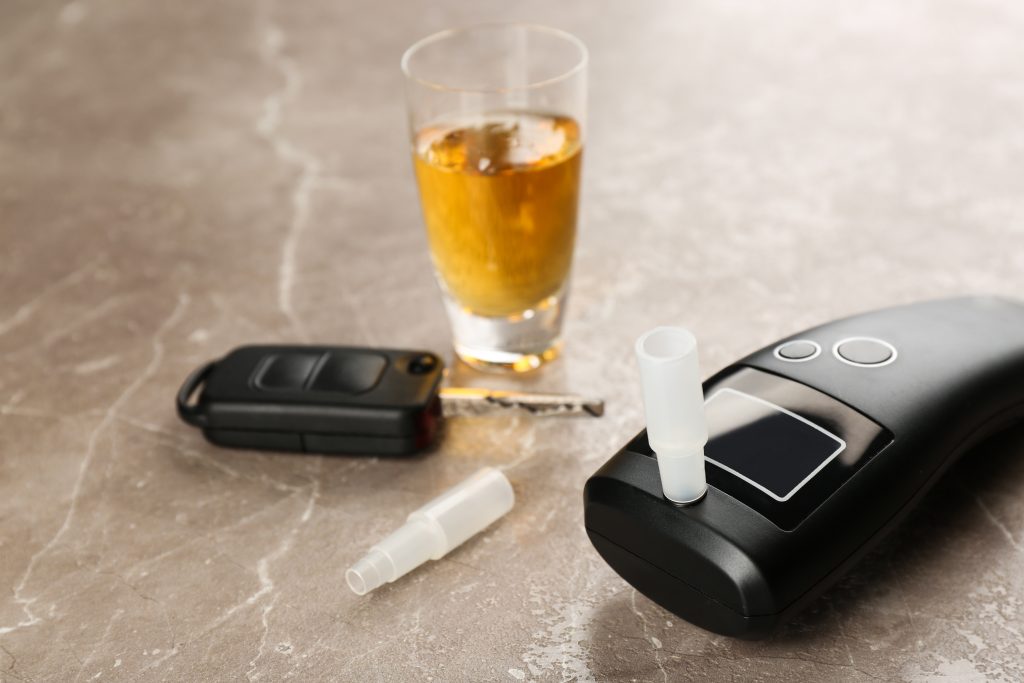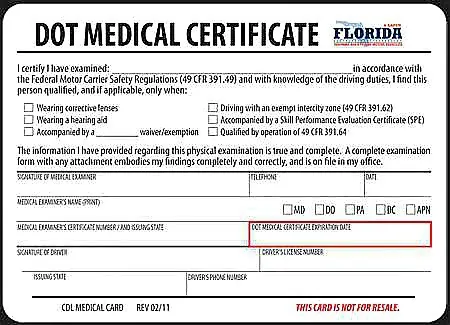You are going to get your Commercial Driver License? It is clearly daunting to meet all the requirements to obtain CDL license, especially when it comes to drug test regulations. In this comprehensive guide, we will dive into the most common question “Do You Drug Test For CDL?”. Understanding the drug testing protocols is necessary for aspiring drivers, as it impacts not only your eligibility for a CDL but also your driving’s career future. Keep reading and ensure you are ready for the journey ahead in the commercial driving industry.
Do you drug test for CDL?
The answer is Yes, you have to take a drug test for CDL since drug testing is a mandatory requirement for obtaining and maintaining a Commercial Driver’s License. The Department of Transportation (DOT) enforces strict regulations to ensure safety for everyone on the roads. CDL applicants must pass a pre-employment drug test, which screens for substances such as marijuana, cocaine, opioids, amphetamines, and PCP,… Additionally, drivers are subject to random drug tests throughout their careers, along with tests after accidents or if there is reasonable suspicion. Failing a drug test can result in negative effects on your driving career. Read our post here to know more details about its impacts.

What type does a drug test for CDL consist of?
A drug test for CDL consists of two main categories: alcohol and drug testing. Each test follows specific procedures and uses distinct methods to ensure accuracy and compliance with the Department of Transportation (DOT).
Alcohol
Alcohol testing for CDL drivers is conducted using either a breath or saliva specimen. The chosen specimen is analyzed to determine the Blood Alcohol Concentration (BAC) which must be below 0.04% for CDL holders. There are two main stages in alcohol testing: Screening Test and Confirmation Test.

Screening test: This is the initial step and serves as a preliminary test to detect the presence of alcohol. It involves using a breathalyzer or a saliva test kit, which provides quick results. If the BAC is below the legal limit, the driver is considered to have passed. If the result is 0.02%, a second test is required.
Confirmation test: If the Screening test shows a BAC of 0.02% or higher, a confirmation test is conducted. This test is performed using an evidential breath testing device (EBT) to provide a more precise measurement. The confirmation test is typically conducted 15-30 minutes after the initial screening to ensure accuracy and prevent false positives. If the BAC is 0.04% or higher, the driver is disqualified from operating a commercial vehicle.
Drug
A drug test for CDL is done using a urine specimen, which is analyzed for specific drugs and their metabolites. The DOT mandates testing for the following substances:
- Marijuana Metabolites/THC.
- Cocaine Metabolites (including crack).
- Amphetamines (including methamphetamine and MDMA, also known as Ecstasy).
- Opioids (including codeine, heroin, morphine, oxycodone, oxymorphone, hydrocodone, and hydromorphone).
- Phencyclidine (PCP).
The process for drug testing involves two main stages: Urine collection and Laboratory test:
Urine collection: The driver is asked to provide a urine sample at an approved collection site. The collection is monitored to prevent tampering or adulteration. The sample is then split into two parts: one for the initial test and the other as a backup in case of disputes or further testing.
Laboratory test: The urine sample is then sent to a certified laboratory for analysis. An initial immunoassay screening test is performed to detect the presence of the above-listed drugs. If the initial test is positive, a confirmation test is conducted using gas chromatography/mass spectrometry (GC/MS) to ensure the accuracy of the results. A Medical Review Officer (MRO) then reviews the final report to determine if the result is positive or negative, taking into account any prescription medications or legitimate explanations provided by the driver.
When a drug test for CDL is conducted?
Drug tests for CDL are conducted at specific times to ensure the safety of commercial drivers and the public. The Department of Transportation (DOT) enforces strict guidelines, requiring CDL holders to undergo drug testing in the following situations:

Pre-employment
Before being hired as a commercial driver, applicants must pass a drug test as part of the pre-employment screening process. This test ensures that potential drivers are free of drugs before they start operating commercial vehicles. Employers are required to verify that the driver passed the test before allowing them to perform any safety-sensitive functions, including driving a commercial vehicle.
Random
Additionally, CDL drivers are subject to random drug testing at any point during their employment. These tests are conducted without prior notice and are designed to deter drug use among drivers. Employers are required to randomly select drivers at least once a year, following DOT regulations. Randomness ensures fairness and keeps drivers accountable throughout their careers. If a driver is selected, they must immediately report to the testing site for sample collection
Reasonable suspicion
If an employer has reasonable suspicion that a CDL is under the influence of drugs or alcohol, they are obligated to conduct a drug test. Reasonable suspicion must be based on specific observations, such as drivers’ behavior, and appearance,…
Post-accident
After certain accidents, CDL drivers are required to take a drug test. If an accident involves a fatality or results in serious injury or damage, the driver may be tested to determine whether drugs or alcohol were a factor. Post-accident testing helps establish whether the driver was impaired at the time of the incident and assists in any subsequent investigations.
Return-to-duty
If a driver has violated DOT drug testing regulations, they must complete a return-to-duty drug test before resuming their duties. This test is typically required after a positive drug test or other substance abuse issues. The driver must test negative before returning to work, and this test must be conducted under direct supervision.
Follow-up
If a driver violates one of the DOT regulations, drivers are subjected to unannounced follow-up drug testing. These tests are part of a structured plan determined by a Substance Abuse Professional (SAP) and can continue up to five years. The purpose is to monitor the drivers’ sobrite and ensure they remain drug-free overtime.
Failure or Refusal to drug test for CDL
Whether you fail a drug test for CDL or you simply refuse to take it, you all get heavy punishment.
Failure to drug test for CDL
A CDL holder fails a drug test if they have a Blood Alcohol Concentration (BAC) of 0.04 or greater or test positive for any of the prohibited substances, such as marijuana, cocaine, amphetamines, opioids, or PCP. Upon failure, the driver is immediately removed from performing any safety-sensitive functions, such as driving a commercial vehicle.
Refusal to drug test for CDL
Refusing to take a drug test for CDL is treated the same as a positive result. If a driver refuses to test, they are also immediately removed from safety-sensitive duties. In both cases, the driver must complete the DOT’s return-to-duty process, including substance abuse counseling and a follow-up test, before being reinstated.
FAQs
1. Do local CDL drivers get drug tested?
Yes, the local CDL drivers also get drug tested like the long-haul drivers. The Department of Transportation (DOT) mandates that all CDL drivers, regardless of the distance they drive, must undergo drug tests in various scenarios, including pre-employment, random testing, and post-accident situations.
2. Do you lose your CDL for a failed drug test?
A failed drug test does not immediately result in the loss of a CDL, but the driver is prohibited from performing safety-sensitive duties, including driving. The driver must complete the return-to-duty process, which includes counseling and follow-up testing. Failure to comply with this process could lead to a suspension or revocation of the CDL.
3. Do all CDL jobs drug test?
Yes, all CDL jobs require drug testing in compliance with DOT regulations. Employers must conduct pre-employment drug testing and random tests throughout a driver’s employment. Other tests, such as post-accident and reasonable suspicion tests, are also mandated
4. Does CDL school drug test?
Yes, CDL schools typically drug test students before they begin training. Some schools may also conduct random drug tests during the training program to ensure compliance with DOT regulations, preparing students for what will be required in their future careers.
5. How often are CDL drivers drug-tested?
CDL drivers are subject to random drug tests at least once per year. In addition to random testing, drivers may be tested after accidents, if there’s reasonable suspicion of drug use, or as a part of the return-to-duty process after a failed test.
6. Can DOT drug test you on the road?
Yes, CDL drivers can be drug tested while on the road. This typically happens if the driver is involved in an accident or if law enforcement officers have reasonable suspicion that the driver is under the influence of drugs or alcohol.
Final thoughts
Drug testing for CDL is essential for maintaining road safety and compliance with DOT regulations. Whether you are entering the industry or maintaining your CDL, understanding the drug testing process, from pre-employment screening to random and post-accident tests is crucial. Hope this blog post is helpful; otherwise, you can leave your questions below for further discussions.



